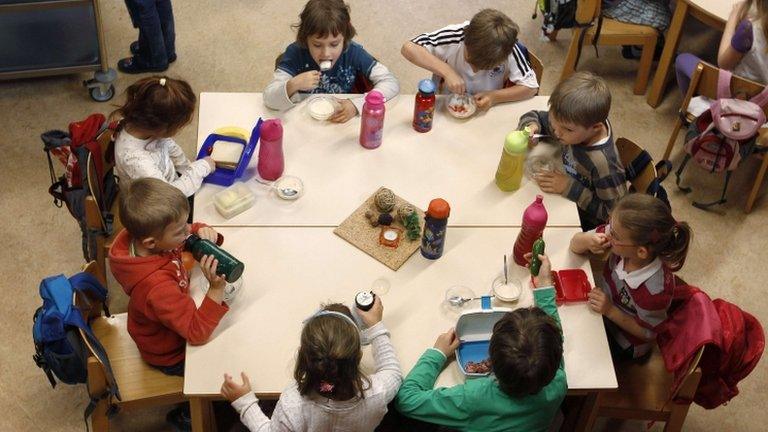Government report reveals childcare funding issue
- Published
Local authorities were given £329m to fund the childcare scheme
Millions of pounds given to councils to pay for free childcare has not been spent on funding the programme, according to a government report.
A financial analysis of the Scottish government's flagship childcare policy, external reveals local authorities were given an extra £329m to fund the scheme.
But they spent or plan to spend just £189m of it on childcare.
Local authority umbrella group Cosla disputed the figures and said the report was a "crude assessment".
A spokesman for the group said it should not detract from the "overriding success story" of councils delivering free childcare.
The disclosure came on the day of a key debate on childcare in the Scottish Parliament.
'Child account'
Since August 2014, all children aged three and four as well as vulnerable two year olds in Scotland should be offered 600 free hours of childcare a year.
However many families have said they have been unable to access the free hours.
The BBC understands that in the next few weeks government ministers are expected to publish a new blueprint and consultation on childcare.
One expected proposal is a "child account" for every child, to provide a more transparent route through which all funding - public and private - is distributed and to ensure the money follows the child, not the institutions.
It would mean parents could choose how they spend their free hours, including spending it on a childminder.
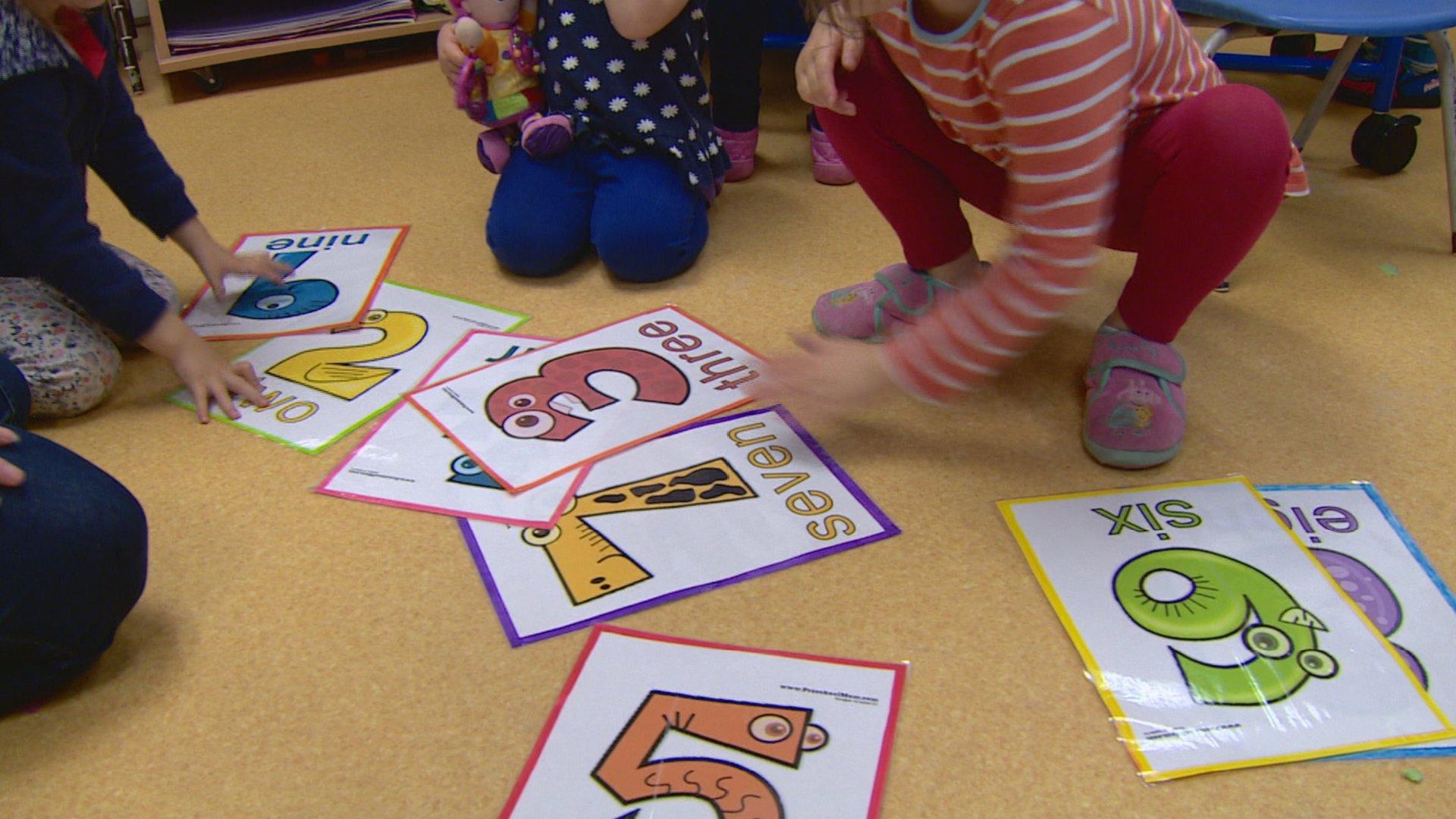
Carolyn Lochhead, of the campaign group Fair Funding For Our Kids, said the current system does not recognise the "realities" of working life for many families.
And she asked whether local authorities could have used the unspent £140m to better support working families.
"What we hear from parents is that they cannot access their free childcare places because our research shows two thirds of childcare places are provided on a half day basis," she said.
"What that means is that you might have a place between 09:00 and 12:30. You can't pay to have your child there before 09:00 and you can't pay to have them there after 12:30. For most working parents that's completely unusable.
"So it's very frustrating for us to hear that there's funds available that haven't been spent. My question would be that if we'd have spent those funds could we have made the system accessible for working parents?"
The possible introduction of "child accounts" was welcomed by Jackie Brock, the head of Children in Scotland, who said the current childcare model was not "child-centred or family-centred enough".
"We would very much welcome child accounts as part of the solution," she said. "Such accounts could match parental choice with a diverse range of available childcare."

The Scottish government has promised to almost double free childcare hours to 1,140 per child - the same amount of time children spend in school - by 2021.
Mark McDonald, the minister for childcare and early years, told the BBC that several new models of childcare would be piloted early next year.
He said the report showed the government had fully funded councils to deliver 600 hours of care for each child.
"Now it is obviously for councils themselves to account for what they have done in relation to the additional spending that was given," he said.
"But it makes it clear that where that spending was asked for by Cosla and local authorities, we have provided that. This helps us to determine what we need to do in future.
"We need to explore the approach we will take in terms of what funding models we will use and how much funding is going to be required in future and how we deliver that expansion [to 1,140 hours per year]."
'Success story'
Cosla, an umbrella organisation that represents 28 of Scotland's 32 councils, said the report highlighted the "complexities" in delivering an expansion of childcare.
A spokesman said: "We are very concerned that there are parts of this report that paint a very misleading picture and do not reflect the reality of what is happening on the ground.
"This is a crude assessment and it would be extremely unhelpful if this becomes the focus and detracts from the overriding success story that councils have delivered 600 hours.
"Indeed in quoting the government's own report, 'the gap between additional funding and additional expenditure reported here will be an overestimate'."
As MSPs debated the issue of childcare at Holyrood, Mr McDonald revealed that he had held talks with Cosla, "because we want to ensure that where we put a policy in place and funding to follow that policy, that funding benefits those children we want it to benefit".
Mr McDonald said the government was continuing discussions with the organisation about the issue.
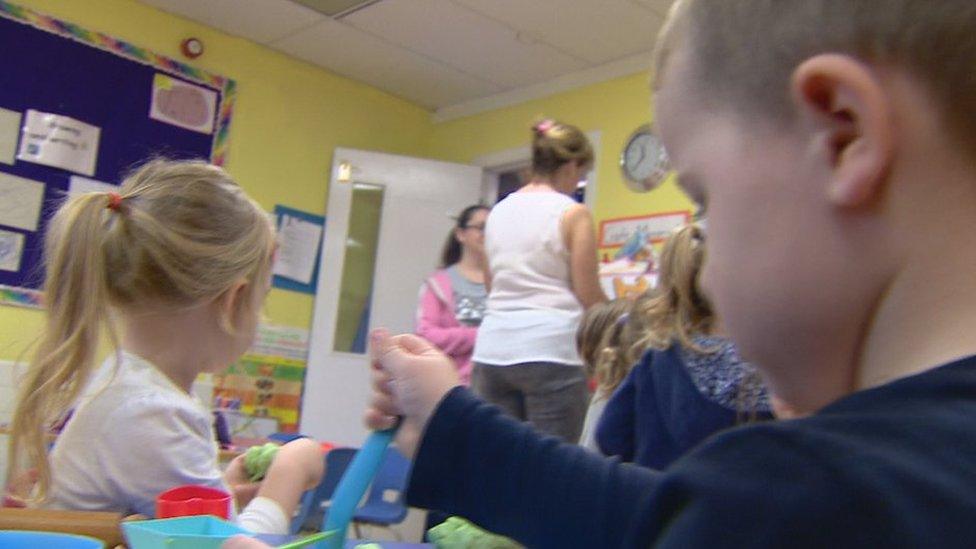
Speaking during the debate, Tory education spokeswoman Liz Smith said it was clear there had been an underspend, although it could be disputed "whose fault some of the underspend might be".
She said: "Like parents, the Scottish Conservatives firmly believe we need to completely free up the system so there is a genuine choice and no ability for local authorities to restrict places."
Labour MSP Daniel Johnson welcomed the Scottish government's commitment to childcare, but said more honesty was needed about what was being delivered as well as "realism" about whether it was meeting parents' needs.
He called for more detail on how a massive expansion in capacity was to be delivered.
He said: "The first minister has called childcare the biggest capital project of this parliament, and she's right. It will cost more than the Queensferry Crossing, more than the M8, M73, M74, more than any school or hospital, and its impact will be far greater.
"However, we don't know how much or where the investment is going, when it will be delivered, or even who will be delivering it."
Tavish Scott, Liberal Democrat MSP for Shetland, highlighted the difficulties of expanding childcare in rural and island areas.
He said: "We currently struggle, the council currently struggles, to recruit appropriately-qualified staff to our remoter pre-school settings.
"The challenge of greater hours of entitlement will become even more so and therefore what are the government's plans to support workforce development in those most remote and rural areas?"
- Published16 August 2016
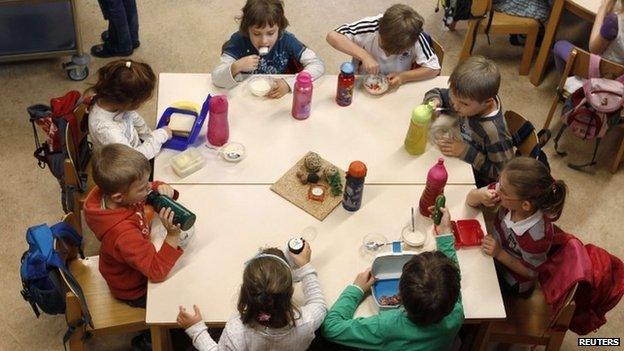
- Published19 February 2015
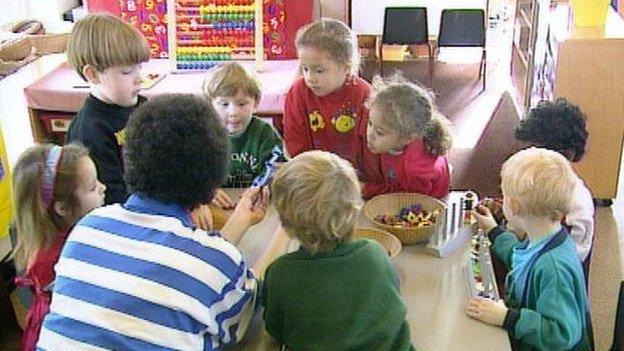
- Published8 August 2014
